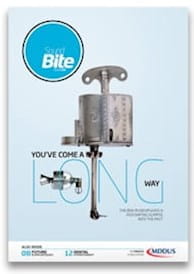HOMEOPATHY is usually thought of in terms of medical treatment, but homeopathic dentistry also has a long tradition and the practice is promoted by the British Homeopathic Dental Association (BHDA). Although the study of homeopathy is not mandated by the General Dental Council, BDS graduates will have heard quite a lot about this system of alternative medicine in the news over the last couple of years. Many people believe homeopathy has no place in the modern era of evidence-based practice, but many practitioners and patients genuinely believe that homeopathy works. So who is right?
Basically, homeopathy is a type of alternative medicine that aims to “treat like with like” using extremely high dilutions of particular substances. In fact, because most homeopathic remedies have been diluted so much, often no molecules of the “substance” in question actually remain.*
One remedy commonly used by homeopathic dentists to treat trauma is arnica, but homeopathic arnica will probably have no arnica in it whatsoever. One might expect the Medicines and Healthcare products Regulatory Agency to clamp down on the use of such potentially misleading descriptions, but the organisation avoids this charge by claiming that such “remedies” are recognised within the homeopathic tradition.
It is due to the implausible nature of the mechanism of homeopathy that the practice has come in for so much criticism. How can the remedy have any effect if there is no active ingredient? And even if there were, what effect is it supposed to exert on the patient?
Homeopathic dentists argue that remedies can be used as an effective complementary treatment to dental surgery to help treat pain, discomfort, bleeding and inflammation. There are also more advanced levels of homeopathy where remedies are used in efforts to prevent or limit infection or complications following surgery. In a recent article in Dentistry magazine, one of the founders of the BHDA Dr Philip Wander said: “Homeopathy can play a major part in dental care in conjunction with conventional dental practice which, of course, includes regular check-ups.”
Exactly how remedies affect patients is a matter of debate. Some homeopaths admit that there may be no effect beyond that of placebo – where the patient believes the treatment is beneficial and this helps them feel better, even if there is no direct medical or dental effect.
Others insist that there is substantial evidence that homeopathy has an effect beyond that of placebo, and refer patients and sceptics to hundreds of studies that appear to prove this. However, science writer Ben Goldacre and others argue that virtually all of these studies were flawed in some way or were unable to be replicated independently. The current scientific consensus (and the view of the British Medical Association) is that homeopathy does indeed have no effect beyond that of placebo.
But if homeopathic treatments do help patients by generating a placebo effect, why should anyone object to this? Problems arise if homeopaths knowingly misrepresent the facts to patients and imply that homeopathic remedies have an active effect if, in fact, they have not. All dentists know that informed (and voluntary and competent) consent is essential if they are to respect patients' rights. Patients must be provided with accurate and relevant information in order to reach a decision.
It is imperative that practitioners are honest when offering patients a homeopathic remedy. Practitioners cannot truthfully claim, for example, “this will cure you” because the remedy will not do that. They could certainly say that “some people with your condition have felt better after taking this treatment”, although some would even object to the use of the word “treatment” as it implies an actual effect. In essence, the rules of medical ethics forbid the prescription of placebos to patients in any context other than clinical trials. So if it is accepted that homeopathy is no better than placebo, it should also be accepted that it should not be offered as a treatment to patients.
The NHS does not spend much (currently around 0.001 per cent of its total annual drug budget) on homeopathy, and it has been suggested that funding for the practice should continue if patients want the treatment. But as already stated, this could be perceived as the funding of prescriptions of placebos on the NHS. Some homeopaths argue that more research is needed into whether homeopathy is more effective than placebo and, if evidence to this effect can be found, homeopathy can be accepted as evidence-based medicine. But as a comedian once said, “there's a name for alternative medicine that's been proven to work. It's called medicine.”
It remains to be seen if homeopathy will eventually make this transition, but if a patient ever asks you for a homeopathic remedy, it is your professional duty to be open and honest about its effectiveness.
*Some remedies are termed “homeopathic” despite containing relatively large quantities of active ingredient; these can indeed have a causative effect on patients, but most homeopathic treatments do not.
David Shaw is a lecturer in Ethics in Relation to Dentistry at the University of Glasgow’s dental school
This page was correct at the time of publication. Any guidance is intended as general guidance for members only. If you are a member and need specific advice relating to your own circumstances, please contact one of our advisers.
Read more from this issue of Insight Primary

Save this article
Save this article to a list of favourite articles which members can access in their account.
Save to library